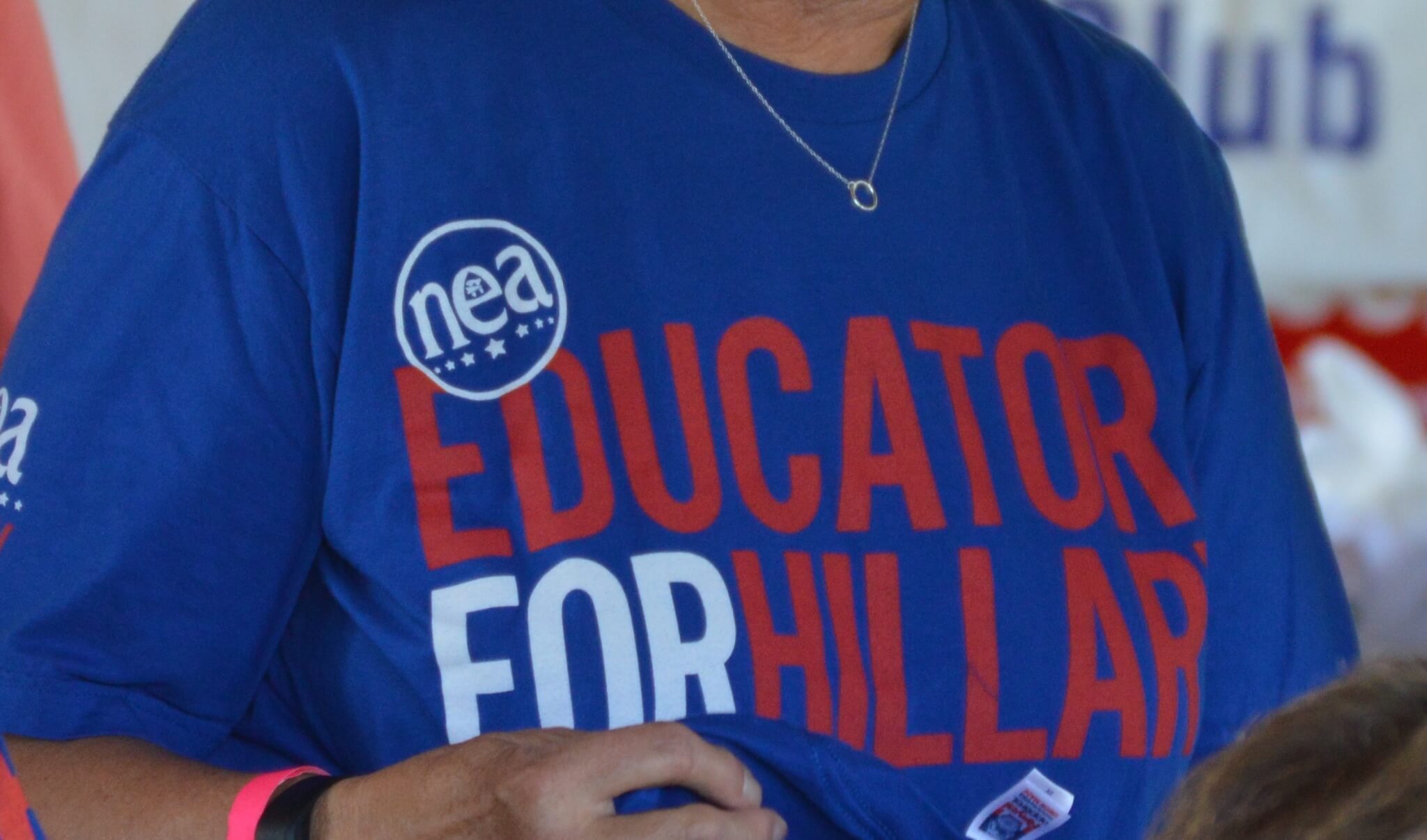
Policy issues have not always enjoyed center stage in 2016’s divisive and wild election, and one major area that’s particularly been left out is K-12 public education. While much of school funding gets determined at the state level, President Bush’s No Child Left Behind Act had a massive impact on public education from the federal level. The next president will likely continue President Obama’s reform of that program, as well as work to address the inequality of educational opportunity in the country.
The country’s largest educator organizations have endorsed Hillary Clinton, who has laid out considerably more in-depth education policy proposals than Donald Trump. Trump’s entire education platform is just school vouchers and criticizing public schools. Clinton, whose life passion in politics is helping children, has developed a wide array of plans on K-12 public schools and early childhood education, which includes proposals on improving students’ computer science skills, modernizing the teaching profession and investing in school infrastructure.
But one of the biggest reason educators trust Clinton more on their issues comes from their interactions with her and her ability to listen. National Education Association President Lily Eskelsen Garcia told Starting Line last month that when they interviewed the candidates, Clinton had a lot of questions.
“She started asking me questions as a teacher,” Garcia noted from her conversation with Clinton. “She asked about kindergarten teachers, special ed. teachers and coaches – is it possible to put together a group. She said, ‘I’d like to just sit and listen to them. I have a lot of questions for them.’”

NEA President Lily Garcia campaigning for Clinton
That gave Garcia some hope that a Clinton presidency wouldn’t just create sweeping education policies that failed to anticipate negative effects.
“What are our priorities? Respect,” Garcia said. “That somebody, it would occur to them that before they launch something like ‘No Child Left Untested,’ they would’ve asked a third grade teacher … what unintended consequences we might want to consider? We could have helped … [Clinton] respected our members.”
One of the biggest long-term priorities for educators is finding a way to lessen the inequalities of school quality in low-income neighborhoods.
“We want every public school to be as good as the best public school,” Garcia said, adding that the funding can be made available to accomplish it. “We did afford it. We just afforded it for those kids. We decided to fund our schools where just some kids – the most affluent kids – could afford it. … What would we need to change so that every public school had what our best public schools have?”
A lot of fixing that problem comes down to how schools get funded, but that’s not necessarily the role of the federal government, nor what the next president should mandate, Garcia believes. The NEA sees the proper role of the federal government as ensuring the civil right of every child to have a quality education. To accomplish that, the Department of Education should create better quality indicators – not just tests – and make that information more publicly available.
“The federal role is not to come in and tell you what to do with your funding formula,” Garcia stated. “The federal role is to say this is not acceptable, fix it … Make better information available – access to college courses, sports and the arts, librarians and nurses. The federal role is to be transparent, to put that information in front of the community. Almost always the politicians at the state and local level don’t like it that way, they don’t want anyone to know which kids are disadvantaged.”

A group of educators for Clinton
But for organizations like the NEA and their ISEA Iowa chapter, the importance of the 2016 election expands far beyond Clinton’s candidacy. On the state level where those education funding formula decisions are made, educators are volunteering to help down-ballot candidates who support better public education funding. A number of current and former educators and school administrators are on the ballot for important State House races, including Molly Donahue in Marion, Tim Hejhal in Northern Iowa, Ken Krumwiede in Scott County and Richard Whitehead in Linn County. Garcia knocked doors with their member Donahue in Marion last month.
At stake is control of the Iowa Senate and Iowa House, where Republicans have consistently delayed budgets and underfunded public schools, causing layoffs, cut programs and larger class sizes across Iowa. But aside from better statewide funding, ISEA’s priorities also include developing programs for early illiteracy intervention to ensure students’ reading comprehension is improving, better access to career and technical education, and better bullying prevention measures in schools.
by Pat Rynard
Posted 10/25/16
Politics

It’s official: Your boss has to give you time off to recover from childbirth or get an abortion
Originally published by The 19th In what could be a groundbreaking shift in American workplaces, most employees across the country will now have...

Trump says he’s pro-worker. His record says otherwise.
During his time on the campaign trail, Donald Trump has sought to refashion his record and image as being a pro-worker candidate—one that wants to...
Local News

No more Kum & Go? New owner Maverik of Utah retiring famous brand
Will Kum & Go have come and gone by next year? One new report claims that's the plan by the store's new owners. The Iowa-based convenience store...

Here’s a recap of the biggest headlines Iowa celebs made In 2023
For these famous Iowans, 2023 was a year of controversy, career highlights, and full-circle moments. Here’s how 2023 went for the following Iowans:...





